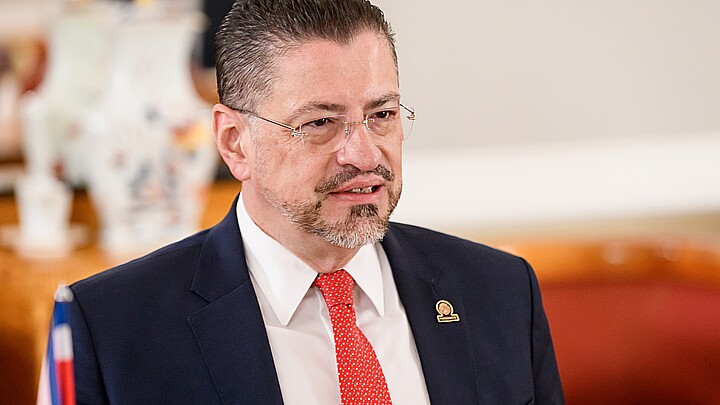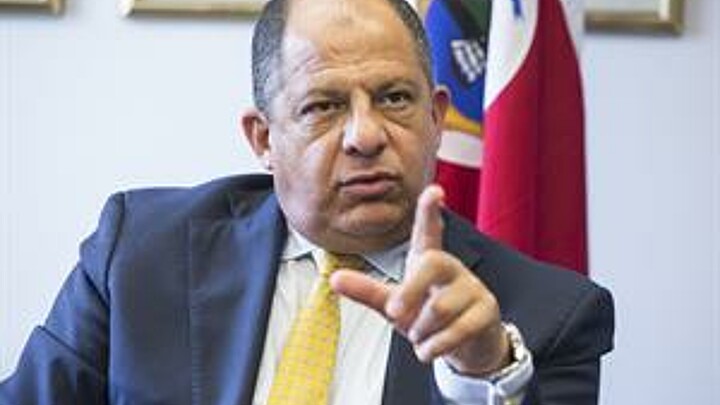Politics
EXCLUSIVE: Costa Rica's deputy VP-elect explains her party's anti-status quo victory
“I consider that the triumph of Rodrigo Chaves is the product of a combination of factors that rarely happen in history: a structural crisis of the Costa Rican welfare model, high corruption and the worsening of the economic crisis caused by the pandemic," said Mary Munive
April 8, 2022 3:01pm
Updated: April 19, 2022 1:37pm
Last Sunday, Costa Ricans elected anti-establishment economist Rodrigo Chaves as their next president – effectively rejecting a decades-old political status quo and welcoming in a candidate who has promised to fight corruption on the campaign trail.
According to exit polls from the Supreme Elections Tribunal (TSE), the 60-year-old economist obtained 52.9% of the total votes, while his opponent, former president José María Figueres of the traditional National Liberation Party (PLN), earned a mere 47.2% of voter support.
Chaves, who previously served as finance minister under outgoing President Carlos Alvarado, was second in a first-round vote in February, but frustrations with the outgoing government and growing economic concerns helped his message resonate with the Costa Rican electorate.
"The urgent themes to address are the ones causing discomfort and suffering to the people," Chaves told supporters before the election, adding that among the key issues were "first the lack of jobs. Secondly the cost of living."
In order to better understand the political situation on the ground and learn more about the new administration’s policy priorities ahead of the Central American country’s May 8 inauguration, ADN America spoke with Costa Rica’s Second Vice President-elect Dr. Mary Denisse Munive Angermüller – a medical doctor turned politician who helped propel the Social Democratic Progress Party to victory.
When asked about Chaves’ surprise victory at the polls, Munive explained that although her ticket’s party was relatively new, the president-elect’s rise in popularity can be attributed to his “strong concern for the economic and social problems that Costa Rica has been facing in the last 25-30 years,” coupled with his charisma and extensive international career as an economist.
“The figure of Chaves, from his knowledge in social economy and his extensive work experience while at the World Bank, together with his charisma and capacity to connect with the common Costa Rican, provided a surprising boost to the new party. People from different walks of life with a desire to transform the country came together,” she explained.
Although the incoming second vice president recognized that a new party winning a presidential election in Costa Rica is unprecedented, she noted that it would have been impossible without the support of an anti-status-quo base. Furthermore, she pointed at a growing distrust in the outgoing government to tackle Costa Rica’s economic woes.
“I consider that the triumph of Rodrigo Cháves is the product of a combination of factors that rarely happen in history: a structural crisis of the Costa Rican welfare model, high corruption, inefficient bureaucracy and the worsening of the economic crisis caused by the pandemic.”
In the face of such pressing concerns, Munive said that the emergence of a charismatic leader with extensive experience in socioeconomic management and a deep understanding of “the needs and desires of the common Costa Rica,” made Chaves the obvious choice.
The incoming second vice president also outlined the administration’s policy plan, noting that there are three main priorities: “Reactivating the economy, tackling corruption and making the state more efficient and effective.”
“We intend to promote a way of governing and working that moves away from cronyism and corruption, both political and economic. We will advocate for an economy, a society and a political culture that prioritizes meritocracy and honesty in the exercise of politics and social service,” she said.








